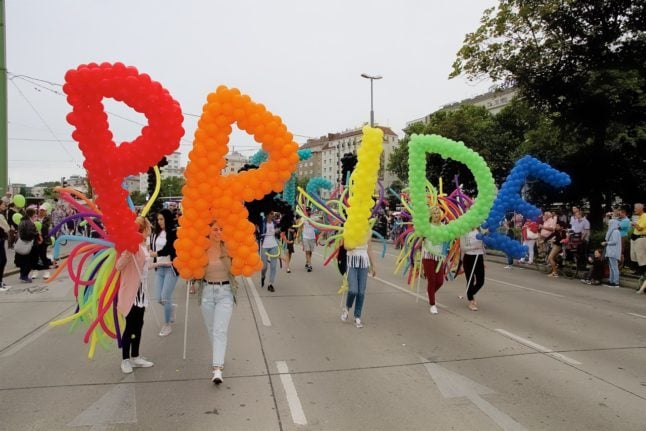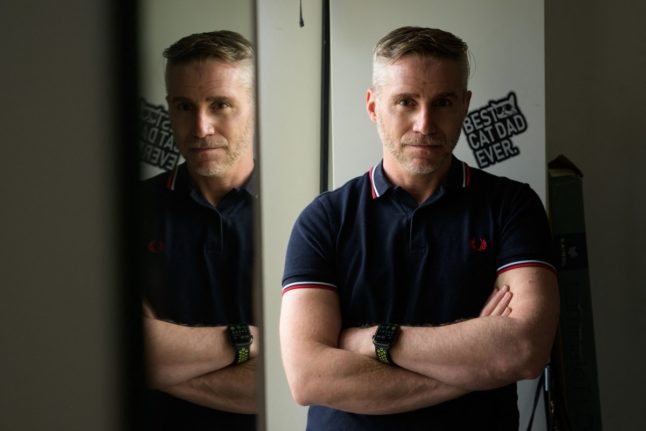On Saturday, Vienna’s Pride Month celebrations culminate in Austria’s largest Pride parade, with an estimated 250,000 visitors showing up along the route.
Kicking off at 13:00 on Saturday from Rathausplatz, the “Rainbow Parade” follows the Wiener Ringstrasse, finishing up again at Rathausplatz, where marchers will finish up the parade with a demonstration around 18:00. Organisers say the demonstration focuses on rights, acceptance, and security for LGBTQI people in Austria, Europe, and around the world.
A ban on conversion therapy, which often involves invasive methods for “changing” a person’s sexual orientation or gender identity, is currently pending in Austria.
Vienna Pride maintains a calendar of events leading up to the parade, including a Pride Conference at City Hall on Friday and a Queer City Walk late Thursday afternoon showcasing Vienna’s queer history. The tour is available in several languages, including English.
Far-right protests parliamentary rainbow colours
This year’s celebrations come amidst complaints from the far-right FPÖ, currently leading the polls in Austria ahead of federal elections next year, about the Austrian Parliament being lit up in rainbow colours.
Das @OeParl ist jetzt noch schöner. Bis zum Abschluss der @ViennaPride leuchtet es abends in 🏳️🌈 Farben in Solidarität mit der #LGBTIQ Community. Danke an unsere ins Leben gerufene #InterGroup die das möglich gemacht hat! Gerade in Zeiten der Hetze & Rückschritte bei… pic.twitter.com/OOhLnSS4t9
— Ewa Ernst-Dziedzic (@dziedzic_ewa) June 12, 2023
FPÖ leader Herbert Kickl wrote an open letter accusing National Council President Wolfgang Sobotka (ÖVP) of using the parliament building for what he considers to be staged events “of a very special kind,” saying the letter represents the views of the entire FPÖ contingent in Parliament.
Kickl also mentioned that participating in Pride Month would “inevitably express solidarity with other actions.” He cited “performances of transvestites (drag queens) with clearly sexually motivated stage names in front of children” or “marches of naked and sexually suggestive people,” calling for Austrian MPs to withdraw their participation.
Pride events elsewhere in Austria
Although Vienna certainly sports the largest Pride in Austria – it’s definitely not the only one. Mistelbach and St. Pölten already had theirs in May, with Bregenz having followed earlier this month.
One week after Vienna, on June 24th, Linz is expecting around 8,000 people to turn up for the Linz Pride parade and Open Air Party.
Graz will follow suit with a parade and party of its own on July 1st, with about 15,000 people expected, followed by Unken – a small village near Salzburg – on July 15th.
Lastly, Salzburg itself wraps up Pride season in Austria with its own parade on September 2nd.




 Please whitelist us to continue reading.
Please whitelist us to continue reading.
Member comments